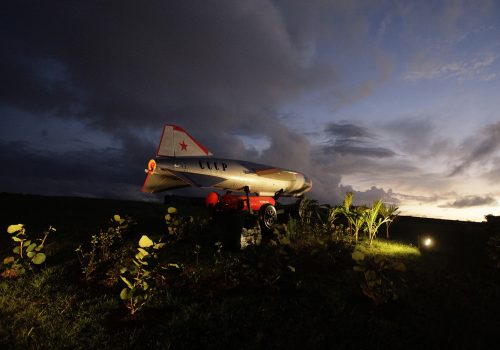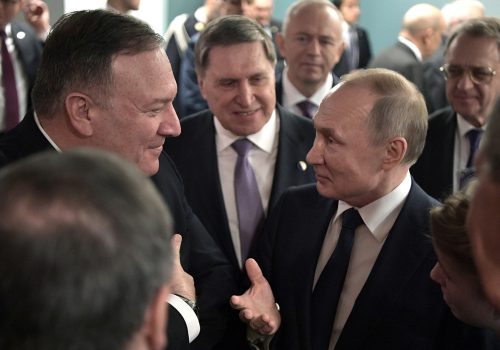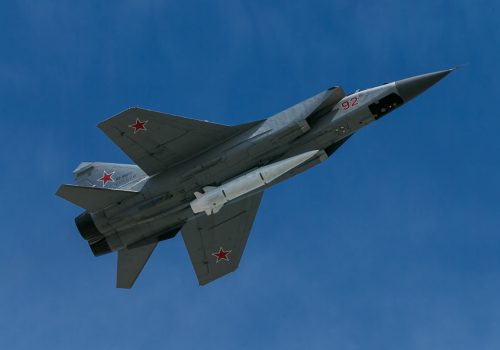While the Cuban Missile Crisis has been studied closely for decades, Harvard historian Serhii Plokhii’s latest book, “Nuclear Folly: A history of the Cuban Missile Crisis,” utilizes newly declassified KGB archives giving a uniquely detailed perspective on the crisis. The 1962 standoff remains the closest the world has come to nuclear Armageddon. As the world today sees the re-emergence of great power competition among nuclear states, Plokhii provides relevant insights with new lessons for how to handle today’s tensions.
Ambassador John Herbst, director of the Atlantic Council’s Eurasia Center, moderates a conversation with historian Serhii Plokhii about his new book “Nuclear Folly: A history of the Cuban Missile Crisis.” Former Deputy Assistant Secretary of Defense Debra Cagan, Dr. Sergey Radchenko, professor of international relations at Cardiff University and public policy fellow at the Woodrow Wilson Center for International Scholars, Dimitri Simes, president and CEO of the Center for the National Interest, and William Taubman, professor emeritus at the Amherst College Department of Political Science and Pulitzer Prize-winning author of Khrushchev: the Man and His Era, join the conversation on the key lessons of the infamous nuclear standoff and how these new lessons impact nuclear politics in the 21st century.
RELATED experts

The Eurasia Center’s mission is to promote policies that strengthen stability, democratic values, and prosperity in Eurasia, from Eastern Europe in the West to the Caucasus, Russia, and Central Asia in the East.




